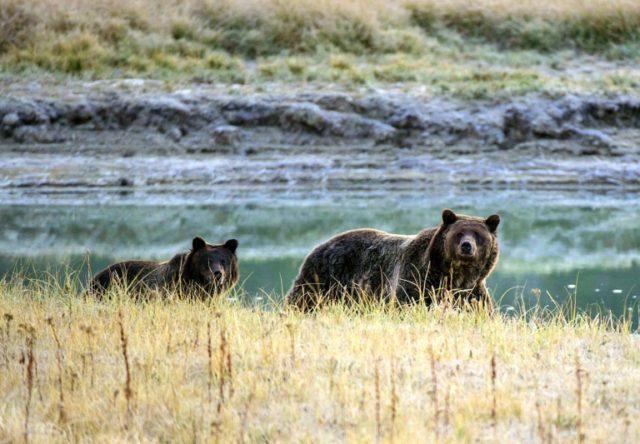Los Angeles (AFP) – A US judge on Thursday blocked the opening of grizzly bear hunts that were set to take place this weekend around Yellowstone National Park for the first time in 40 years.
The ruling by US District Judge Dana Christensen, of Montana, marked a victory for wildlife advocates and Native American tribes that had sought to stop the controversial hunt scheduled to open in Idaho and Wyoming on Saturday.
“This is a pretty major victory and we are nothing short of elated,” Melissa Thomasma, executive director of Wyoming Wildlife Advocates, told AFP. “The hunt was controversial from the beginning and we have been firmly opposed to it from the start.”
The Crow Indian Tribe and several other Native American tribes filed suit last year against the US Fish and Wildlife Service over its decision to remove protections for about 700 grizzly bears in the Rocky Mountains on the grounds they were no longer an endangered species.
Christensen heard arguments in the case on Thursday and issued a temporary restraining order for 14 days while mulling whether the federal government should reinstate federal protections for the bears.
“As we explained to the judge today, the removal of protections for Yellowstone’s iconic grizzlies was illegal,” said Tim Preso, an attorney for Earthjustice, which is representing several conservation groups and the Northern Cheyenne Tribe. “The bears should not be killed in a hunting season made possible by an illegal government decision.”
The judge in his ruling said he had received substantial documentation that the impending hunt would cause irreparable harm to the bears “because once a member of an endangered species has been injured, the task of preserving that species becomes all the more difficult.”
A spokesman for the US Fish and Wildlife Service could not be immediately reached for comment.
The planned hunts would have allowed for up to 23 bears to be killed outside of Yellowstone National Park, which is located in the western US states of Idaho, Montana and Wyoming.
Conservationists have challenged the federal government’s contention that the grizzly population in that area is stable and argue that the hunts would put more pressure on a species already struggling to survive.
“There have been high mortality rates among grizzly bears in the past few years and their traditional food sources are diminishing because of climate change,” Thomasma said.
“Bears are having to work harder to simply get the same number of calories and so we thought it was completely inappropriate to add the additional pressure of hunting on top of these already record-breaking mortality rates.”

COMMENTS
Please let us know if you're having issues with commenting.